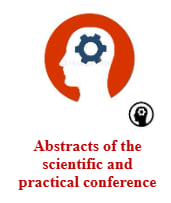| Krylova O.I., Executive Director, Junior Research Fellow in Law at IPE LLC, https://orcid.org/0009-0009-3365-2404 A collection of scientific papers based on materials from the XXIII International Scientific and Practical Conference ‘VASILYEVSKY READINGS’, dedicated to the bright memory of Honored Lawyer of Ukraine, Doctor of Law, Professor Valentina Antonivna Vasilyeva (3-4 October 2025, Ivano-Frankivsk) / Research Institute of Private Law and Entrepreneurship named after Academician F. G. Burchak of the National Academy of Legal Sciences of Ukraine; edited by L. V. Sishchuk, Candidate of Juridical Sciences. Ivano-Frankivsk, 2025. 236 p. (Р. 94-98). |
Generalised theses.
The doctrine of material change in circumstances is a manifestation of the fundamental doctrine of rebus sic stantibus, which historically developed in Roman law and was further codified in continental legal systems as a counterbalance to the principle of pacta sunt servanda. In the public law context, particularly in the field of public procurement, this institution is a key mechanism for adapting contractual relations to the dynamically changing conditions of the socio-economic environment. It acts as a legal shock absorber, ensuring a balance between the stability of contractual terms and their flexible adjustment in the event of unforeseen but objectively determined changes.
The concept of a material change in circumstances is particularly important in the field of public procurement. While in traditional civil law contracts its application is mainly related to private risks, in public procurement such changes directly affect the socio-economic interests of the state and society, as they relate to the efficient use of budget funds.
Legal regulation of public procurement in Ukraine creates a conflict between the general civil law approach enshrined in Article 652 of the Civil Code of Ukraine and the special restrictions provided for in Part 5 of Article 41 of the Law of Ukraine ‘On Public Procurement’. This requires a systematic analysis and harmonisation of civil law and special rules to ensure legal certainty and effective contract regulation.
However, in the field of public procurement, there is a special legal regime that limits the universal provisions of Article 652 of the Civil Code of Ukraine. In particular, Part 5 of Article 41 of the Law of Ukraine ‘On Public Procurement’ contains an exhaustive list of cases when changes to the essential terms of a contract are permitted. These include market price fluctuations, the need to extend the performance period due to the occurrence of documented objective circumstances that caused such an extension, including force majeure circumstances, changes in tax and fee rates, etc. Although the list of such cases specialises in the doctrine of material change in circumstances, it actually implements its fundamental principle – ensuring a balance of contractual interests in the event of unforeseen changes.
At the same time, the Law of Ukraine ‘On Public Procurement’ does not provide for the possibility of mandatory extension of the term of the contract at the request of one of the parties, including through recourse to the courts. This approach is explained by the specifics of public procurement, where the principles of transparency, predictability and non-discrimination of participants are important. Excessive application of the doctrine of material change in circumstances could create risks of abuse and undermine the stability of contractual relations. At the same time, the exceptions provided for by the Law actually allow avoiding situations where the performance of the contract becomes economically unprofitable or impossible.
The existence of numerous disputes regarding the application of Article 652 of the Civil Code of Ukraine in the field of procurement indicates insufficient regulatory control. Some courts recognise the priority of the special provision of the Law of Ukraine ‘On Public Procurement’, considering the list of grounds to be exhaustively exhaustive. Others allow the application of Article 652 of the Civil Code of Ukraine, provided that this does not contradict the objectives of the procurement and the fact of the change in circumstances is confirmed by appropriate and admissible evidence (in particular, official statistical data, conclusions of specialised expert institutions, etc.).
In view of the above, the concept of a material change in circumstances in the field of public procurement is not an additional option, but one of the mechanisms that ensures the flexibility and adaptability of the state to crisis situations in contractual relations, compliance with international standards, and the continuity of public functions. However, at present, its application is limited by a logical and regulatory conflict between the provisions of the Civil Code of Ukraine and the Law of Ukraine «On Public Procurement», which creates legal uncertainty and hinders an effective response to changes in circumstances. The conflict can be overcome by legislating a combined model for modifying contractual obligations in the field of public procurement, which includes both pre-trial settlements based on the autonomy of the parties will and a special judicial procedure. This approach is in line with the European principles of legal certainty, proportionality and regulatory efficiency, and at the same time corresponds to the structure of Article 652 of the Civil Code of Ukraine. The introduction of this model will contribute to greater legal harmonisation, protection of public interests and integration of the national procurement system with international standards.











